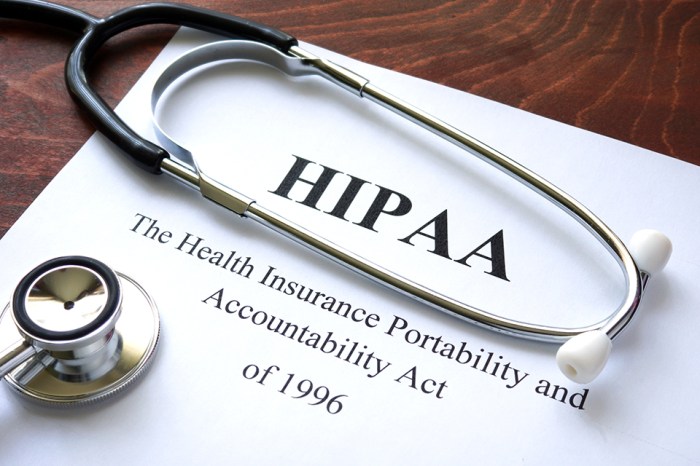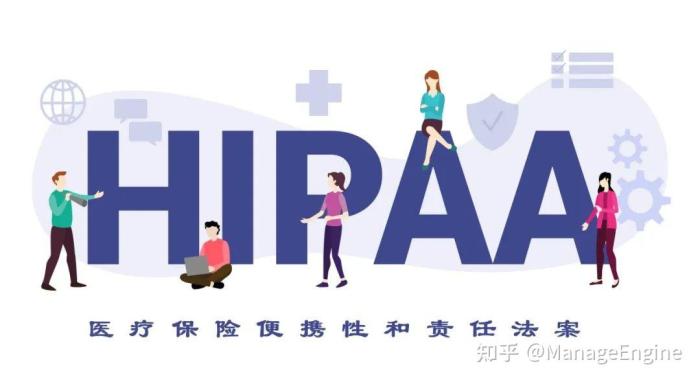
What is the HIPAA law? It stands for the Health Insurance Portability and Accountability Act, a complex but crucial piece of legislation that safeguards your sensitive health information. Imagine a world where your medical records could be freely shared without your knowledge or consent. HIPAA acts as a shield, protecting your privacy and ensuring that your medical information remains confidential.
Enacted in 1996, HIPAA aims to streamline healthcare administration and improve patient privacy. It sets strict standards for how healthcare providers, insurance companies, and other entities handle your protected health information (PHI). This includes everything from your medical history and diagnoses to billing records and insurance details. HIPAA’s impact on healthcare is undeniable, shaping how we access, manage, and protect our health information.
Impact of HIPAA

The Health Insurance Portability and Accountability Act (HIPAA) has significantly impacted healthcare in the United States, particularly in areas related to patient privacy, data security, and innovation.
Patient Privacy
HIPAA’s primary objective is to protect patient health information (PHI). It sets strict standards for the use, disclosure, and safeguarding of sensitive medical records.
- Confidentiality: HIPAA mandates that healthcare providers keep patient information confidential, only sharing it with authorized individuals or entities. This includes limiting access to medical records, preventing unauthorized disclosure, and ensuring proper disposal of sensitive documents.
- Patient Rights: HIPAA grants patients specific rights regarding their health information, including the right to access their records, request corrections, and restrict certain disclosures. Patients can also file complaints if they believe their privacy has been violated.
- Breach Notification: In the event of a data breach, HIPAA requires covered entities to notify affected individuals and the Department of Health and Human Services (HHS). This ensures transparency and allows individuals to take steps to mitigate potential harm.
Healthcare Data Security, What is the hipaa law
HIPAA plays a crucial role in protecting healthcare data from unauthorized access, use, or disclosure. It establishes security standards that cover physical, technical, and administrative safeguards.
- Physical Security: HIPAA requires healthcare providers to implement measures to protect physical access to PHI, such as secure storage areas, locked cabinets, and restricted access to computer systems.
- Technical Security: This aspect focuses on protecting electronic health information (EHI). HIPAA mandates the use of strong passwords, encryption, and access controls to prevent unauthorized access to sensitive data. It also requires regular security audits and vulnerability assessments.
- Administrative Security: HIPAA addresses administrative procedures for safeguarding PHI, including workforce training, security awareness programs, and policies for data retention and disposal.
Healthcare Innovation
While HIPAA is primarily focused on privacy and security, it has also influenced healthcare innovation in several ways.
- Interoperability: HIPAA’s emphasis on standardized data formats and electronic transactions has facilitated interoperability between healthcare providers, enabling seamless exchange of patient information. This has paved the way for advancements in telemedicine, electronic health records (EHRs), and patient portals.
- Data Analytics: By establishing secure frameworks for data sharing, HIPAA has enabled the use of large-scale data analytics in healthcare. This has led to the development of predictive models, risk assessments, and personalized treatment plans.
- Research and Development: HIPAA’s provisions for de-identified data sharing have facilitated research and development in areas such as drug discovery, disease prevention, and population health management.
Influence on Healthcare Practices
HIPAA has significantly influenced healthcare practices, leading to several changes in the way healthcare is delivered.
- Electronic Health Records (EHRs): HIPAA has driven the widespread adoption of EHRs, which have streamlined patient care, improved data accuracy, and facilitated better communication between healthcare providers.
- Patient Portals: HIPAA’s focus on patient rights has led to the development of patient portals, which allow individuals to access their medical records, schedule appointments, and communicate with their healthcare providers online.
- Privacy Policies and Procedures: Healthcare organizations have implemented comprehensive privacy policies and procedures to comply with HIPAA regulations. This has resulted in increased awareness of patient privacy and security among healthcare professionals.
Final Wrap-Up: What Is The Hipaa Law

Understanding the HIPAA law is essential for everyone, from patients to healthcare professionals. By ensuring the confidentiality and security of your medical information, HIPAA empowers you to take control of your health journey. Its impact on healthcare is far-reaching, fostering trust, promoting innovation, and ultimately, improving the overall quality of care. As technology continues to evolve, the principles of HIPAA remain steadfast, ensuring that your health information is protected and respected.
User Queries
What happens if a HIPAA violation occurs?
HIPAA violations can result in various penalties, including civil monetary penalties, criminal charges, and even loss of licensure for healthcare professionals. The severity of the penalty depends on the nature of the violation and the intent involved.
Can I access my own medical records?
Yes, you have the right to access your medical records under HIPAA. You can request copies of your records from your healthcare providers and review them. You also have the right to request corrections or amendments if you believe any information is inaccurate.
How does HIPAA impact telehealth?
HIPAA applies to telehealth services as well. Telehealth providers must adhere to the same privacy and security standards as traditional healthcare providers. This includes using secure platforms for communication and storing patient data securely.
Who enforces HIPAA?
The U.S. Department of Health and Human Services (HHS) is responsible for enforcing HIPAA. They have the authority to investigate complaints and impose penalties for violations.




